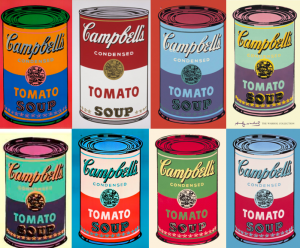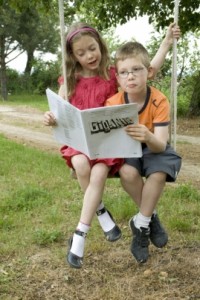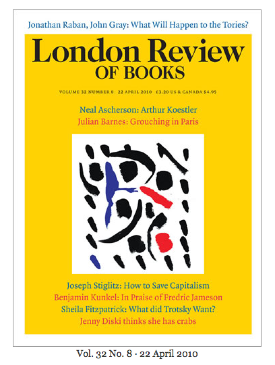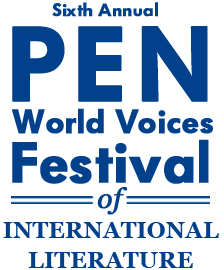 Once a year PEN has a bunch of events for a few days around New York. Usually, it’s some panels, some readings, some debates, and some parties. This year I opted out of the usual party circuit because I don’t have time for fun, cheering up, and/or “looking on the bright side.” Regardless a friend made me sit with him at the “Short Stories: Past, Present, and Future” panel anyway, and I thought it might be helpful to talk about it at Fictionaut, given that what we generally share are short stories. Spotted in the audience, Fictionaut’s own (and National Book Critic Circle President) Jane Ciabattari. On a more somber note, at the end of the table of panelists was an empty chair. Panel moderator and New Yorker Fiction Editor Deborah Treisman noted that it was in honor of the 900 writers PEN approximates were harmed, imprisoned, killed, etc for being a writer last year. It was a gut-wrenching thought and yet inspiring in a way: We sat in the audience in solidarity with those who could not.
Once a year PEN has a bunch of events for a few days around New York. Usually, it’s some panels, some readings, some debates, and some parties. This year I opted out of the usual party circuit because I don’t have time for fun, cheering up, and/or “looking on the bright side.” Regardless a friend made me sit with him at the “Short Stories: Past, Present, and Future” panel anyway, and I thought it might be helpful to talk about it at Fictionaut, given that what we generally share are short stories. Spotted in the audience, Fictionaut’s own (and National Book Critic Circle President) Jane Ciabattari. On a more somber note, at the end of the table of panelists was an empty chair. Panel moderator and New Yorker Fiction Editor Deborah Treisman noted that it was in honor of the 900 writers PEN approximates were harmed, imprisoned, killed, etc for being a writer last year. It was a gut-wrenching thought and yet inspiring in a way: We sat in the audience in solidarity with those who could not.
The panel starred Preston L. Allen, Alex Epstein, Aleksandar Hemon, Yiyun Li and Martin Solares. Heavy, y’all, heavy. Ms. Treisman opened the panel with a discussion of the tradition of the short story. (Obviously I was eager to jump right into questioning everyone about Flash. That never happened btw.)
Aleksander Hemon, author of the Lazarus Project, for one thing, said that he began in Yugloslavia reading translations of Cheever and Carver. (You know how I feel about Carver and Cheever. Gold star, Hemon, gold star.) The conversation was mostly surrounding why the short story currently gets less respect in the canon than the novel. “It is thought the novel is the big guns,” Hemon noted, “The short story practice for the novel.” Everybody in the room shifted in their chairs sadly
“If you translate short story into Chinese is literally means ‘short little takes,” said Yiyun Li. Again, a bummout. Both Hemon and Li were on the panel to defend the short story, not negate it, but as the woman who raised me used to say, “Can’t fix anything until you pinpoint the problem,” and so, there we were, panel and audience full of short fiction writers and readers, admitting we are considered “the short take.”
“Hemingway, Faulker, Cheever, Joyce Carol Oates (whom I Nicolle refer to as “The JCO”),” began Preston Allen, “these are some of my greats,” and the conversation took off like a bottle rocket launched from a West End roof deck in July.
“In Mexico there is a tradition of reading short stories. I think that’s because of the Politicians. Politicians are the greatest tellers of short stories,” joked Solares (who also noted that he is a resident of Mexico City, and is known for his short story collections which I pardon my French here but freaking love, El Planeta Cloralex and Los Minutos Negros (The Black Minutes), which is a collection of shorts based on the premise that every human has five “dark minutes” in total in their lifetime.
“The novel allows for more time and more space,” Hemon noted. -Which is how I feel about it. Let’s compare standing in an elevator to standing in a gymnasium, for example. Try spinning around. See what I’m getting at?
“I wrote a novel first. I wrote a novel first so I could learn how to write a short story,” said Li.
The most, for me the most interesting part of the panel said was by Hemon: “The novel signifies a shift away from language and a move toward the psychology of the character.” This killed me. I agreed with it but hated that I agreed with it. I loathed it. My stomach turned, as your stomach is turning from how poorly this installation is written, I’m sure.
Allen paraphrased John Gardner. “The novel is the easiest to write, then the short story, then the poem. In a short story, you can’t get away from a wrong word, a wrong sentence. In the novel you can have entire chapters people skip over.” I was agonizing in my seat. As writers of any form should agonize over every word, every comma, every everything. He pulled it out of the water, thankfully: “The dream is the poet who masters the short form and then writes a novel.” The dream is that we transcend labels, I scoffed like an awful woman, sorry Preston L. Allen.
Alex Epstein, who was wearing a t-shirt with a four leaf clover under his sport coat, which I found particularly poetic and interesting, noted, “It’s about the process.”
“The novel and the short story are different answers that you give,” said Solares.
Something which I found incredibly cool and helpful and thought I’d pass on to Fictionaut was what Yiyun Li said, paraphrasing an old mentor: “Every short story should have at least three short stories in it. Every short story should have at least five short stories in it.”
“To heed the call of the novel,” Solares said, “you have to be willing to sacrifice everything. To heed the call of the short story, you have to be willing to sacrifice everything on the spot.”
Nicolle Elizabeth will check in with Fictionaut Groups again next Friday.

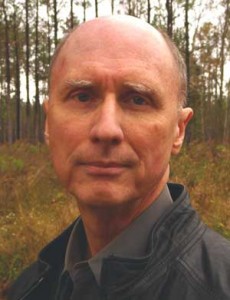
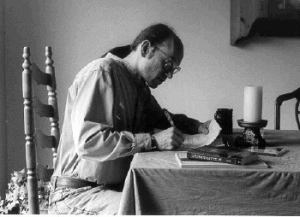
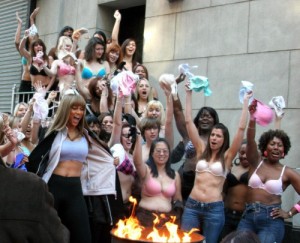

 Once a year PEN has a bunch of events for a few days around New York. Usually, it’s some panels, some readings, some debates, and some parties. This year I opted out of the usual party circuit because I don’t have time for fun, cheering up, and/or “looking on the bright side.” Regardless a friend made me sit with him at the “Short Stories: Past, Present, and Future” panel anyway, and I thought it might be helpful to talk about it at Fictionaut, given that what we generally share are short stories. Spotted in the audience, Fictionaut’s own (and National Book Critic Circle President)
Once a year PEN has a bunch of events for a few days around New York. Usually, it’s some panels, some readings, some debates, and some parties. This year I opted out of the usual party circuit because I don’t have time for fun, cheering up, and/or “looking on the bright side.” Regardless a friend made me sit with him at the “Short Stories: Past, Present, and Future” panel anyway, and I thought it might be helpful to talk about it at Fictionaut, given that what we generally share are short stories. Spotted in the audience, Fictionaut’s own (and National Book Critic Circle President)  Steve Himmer
Steve Himmer